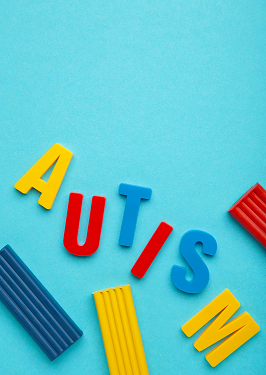April 2 was declared by the United Nations as World Autism Awareness Day, in order to promote the full realization of human rights and fundamental freedoms for people with autism, ensuring their equal participation in society.
What is autism?
According to the Spanish Autism Confederation, Autism Spectrum Disorder (ASD) is a neurodevelopmental condition that affects the configuration of the nervous system and brain functioning. It is characterized by difficulties in communication and social interaction and in the flexibility of thought and behavior of the person who presents it.
To date, the origin of autism is not known, but it is known that it is genetic and that certain environmental factors (certain parental characteristics or perinatal events) contribute to the development and evolution of the condition.
Although they share the same diagnosis, all autistic individuals are different and each has his or her own abilities, needs and interests.
Characteristics of autism
- Communication
In terms of communication skills, autistic people may have difficulties in:
- Understand certain messages that are conveyed verbally or the non-literal meaning of language (jokes, metaphors, ironies or double meanings).
- Correctly interpret non-verbal communication: eye contact, gestures, body posture or emotional expressions.
- Identify topics that are appropriate to the context or the interest of the person with whom you are speaking.
- Use language appropriate to the situation, sometimes using overly formal expressions or unusual intonation.
- Behavioral flexibility
People with autism may have difficulties in responding flexibly to the demands of different social contexts, which may be manifested in:
- Resistance to changes in routine or environment, even if they are minimal.
- Need for support in knowing how to cope with unfamiliar situations.
- Availability of a limited repertoire of interests, very intense and specific.
- Rigid and repetitive behavior patterns.
- Alterations in response to stimuli
Some people with ASD present alterations in the processing of sensory stimuli. This can manifest itself in:
- Intense discomfort to specific sounds, smells, lights, tastes or textures, which may go unnoticed or not bother other people.
- Unusual interest in sensory aspects of the environment, such as insistence on smelling or touching certain things or fascination with bright or spinning lights and objects.
- Apparent indifference to pain or temperature.
- Seeking stimulation through physical activity, such as rocking, spinning, or repeated jumping.
Abilities and strengths of people with autism
Having autism implies a different way of processing information and understanding the world around us and this translates into a series of abilities that people with this condition present:
- Meticulousness and attention to detail
- Sincerity and honesty
- Exhaustive knowledge on very specific topics of their interest
- Good skills in routine, mechanical and repetitive tasks
- Logical processing of information
- Respect and compliance with established rules.


